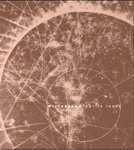MUC7447
Advanced Seminar in Electroacoustic Music
|
Syllabus - Fall 2002 (preliminary)Composition and research in advanced topics in computer music.
Required Text:
(1) Digital Audio Tape (DAT) (2) 2 Zip Cartridges (for data backup)
20% Listening Presentations 30% Microcompositions 40% Final Project Office Phone No.: 392-0223 ext.240 Office Hours: see schedule Contact: Dr. James Paul Sain [email] Graduate Fellow: Sam Hamm [email] Graduate Assistant: Michael Deall [email] Graduate Assistant: Joo Won Park [email] Listserv (closed): ufemu-l@lists.ufl.edu Policies: 1) All listening assignments are selections from the Music Library Listening Area; please plan your time accordingly. A lack of planning on your part does not necessarily constitute an emergency on the part of the library support staff. 2) All exams are comprehensive. 3) Late work is not accepted. 4) Attendance is required at all classes. Should a class be missed, it is the student's responsibility to see the lecture notes from the missed class are obtained from a classmate and any work assigned completed by their return (a class list will be supplied to help facilitate this policy). After three (3) class absences your grade will be lowered one grade increment for each absence after three (ie A to B+, or C to D+). Your grade will be lowered one grade increment for each Unbalanced Connection concert missed. 5) The Electroacoustic Music Studio will be reserved at a posted time for use by each electroacoustic music student. Additional time is possible by sign-up every two weeks. Each studio user has a five minute grace period after which the studio will revert to open use; the open use time will be available on a first come, first served basis. 6) Sign-in/out is required when using either the lab or studio. You must return the studio to the normal condition after each use or your use privileges will be removed. 7) Plan early for your final project...things have a way of happening at the last minute. 8) The requirements, emphasis, and timing of this course may be changed or adjusted to meet the specific needs of the class as determined by the instructor. 9) All students of The University of Florida are expected to conduct themselves in a reasonable and professional manner at all times as described in the Student Honor Code; please refer to The Code for specifics. 10) UF Software Coppyright Policy (12 May 1994): All faculty, staff and students of the University of Florida are required and expected to obey the laws and legal agreements governing software use. Failure to do so can lead to monetary damages and/or criminal penalties for the individual violator. Because such violations are also against the University policies and rules, disciplinary action will be taken as appropriate. 11) UF Counseling Services - Resources are available on-campus for students having personal problems or lacking clear career and academic goals which interfere with their academic performance.
1.University Counseling Center, 301 Peabody Hall, 392-1575, personal and career counseling; 2.Student Mental Health, Student Health Care Center, 392-1171, personal counseling; 3.Sexual Assault Recovery Services (SARS), Student Health Care Center, 392-1161, sexual assault counseling; 4.Career Resource Center, Reitz Union, 392-1601, career development assistance and counseling.
13) My office door is always open; please feel free to drop by to discuss class issues as the need arises.
Grading Scale:
Microsound: Introdution, Acknowledgments, Overview
Microsound: Chapter 1, Musical time scales Friday, Sept. 13, 2002 Unbalanced Connection 20, MUB 120 at 8:00 p.m.
Week 4
Week 5
Microsound: Chapter 2, History of the concept of microsound, from antiquity to the analog era Week 6
Week 7
Microsound: Chapter 3, Granular synthesis Week 8
Listening Presentation 2 Week 9
Microsound: Chapter 4, Varieties of particle synthesis Week 10
Week 11
Microsound: Chapter 5, Transformation of microsound Week 12
Week 13
Microsound: Chapter 6, Windowed analysis and transformation Week 14
Kyma Manual: (pp.)
microcomposition: These projects are to be handed in on appropriate media and should be of the highest quality in presentation (CD labels, program notes, program book, biography, and parts/score where applicable). UNBALANCED CONNECTION CONCERTS: All students are required to participate in the Unbalanced Connection concerts on Sept. 13, 2002, Friday, Oct. 11, 2002 and Friday, Nov. 8, 2002 (SEAMUS EA Month). Students are encouraged to have compositions presentable for performance on one or more of these concerts. All students will be required to set-up, attend, and tear-down for each of these concerts. The concerts will be held in MUB 120. Please clear your schedules early to avoid a conflict. Final Project: Creative work to demonstrate an understanding and application of the principles and aesthetics discussed and experienced during the course of the semester. All final projects will be considered for performance in the Twelfth Annual Florida Electroacoustic Music Festival in the spring (April 3-5, 2003). These projects will be retained/archived. Do not hand in your only copy. Safety Hints: Always keep several back-up copies of your work on multiple disks; if you have a personal Macintosh you may wish to keep one copy on your personal hard-drive. Do not use the labs'/studio's hard-drives as personal storage devices. All drives are regularly cleaned of all unauthorized software, files, and documents. Do not reorganize any software on the platforms in either the Computer Aided Music Instruction Lab (MUB 147) or the Electroacoustic Music Studio (MUB 340). Please sign in and out each time you use the studio or lab. Hearing Safety: It is very important that the student of electroacoustic music be aware of the listening environment in which they are working. The studio environment can, if used improperly, subject the listeners ears to unhealthy sound pressure levels. For more information and links to web sites about hearing health click here .
|
- last update 17 August 2017 -

